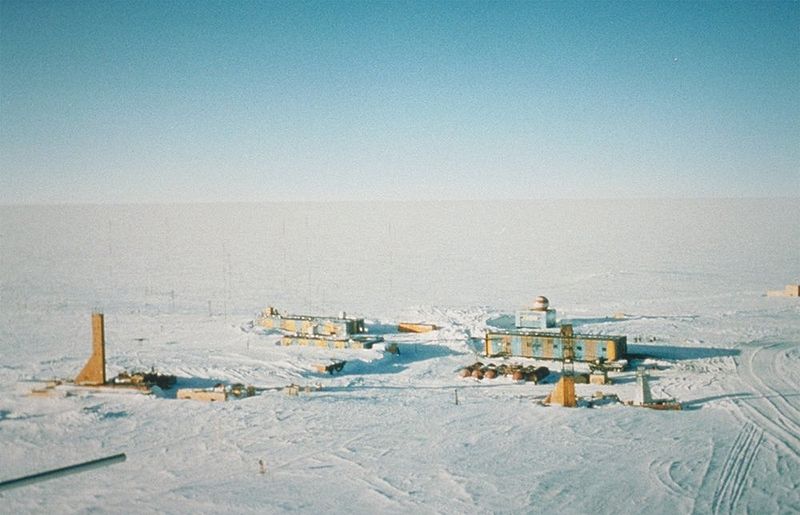

Winter has stymied a Russian-led effort to drill into an Antarctic lake that has been buried for 14 million years, scientists said this week. Just 96 feet short of their goal, scientists had to put their tools away and wait out the rapidly approaching Antarctic winter. But they don’t want to lose the progress they’ve made so far, so they’re pouring kerosene down the borehole to keep it from freezing.
Meanwhile, the scientific community is worried the kerosene will taint the pristine, untouched lake and harm any strange life forms that might call it home.
The Russian team evacuated just in time — had they waited much longer, their airplane’s hydraulic systems would have frozen, stranding them until spring, according to Science Insider. They left behind a 12,300-foot-deep borehole, just 29 meters (about 96 feet) from the lake. Teams had been working 24 hours a day in an attempt to reach the water-ice boundary.
Lake Vostok is interesting for its similarity to Europa and Enceladus, frozen satellites of Jupiter and Saturn, respectively. Astrobiologists are among those eager to uncover Lake Vostok’s Miocene-era secrets.
Vostok Station, just above the lake, holds the distinction of experiencing the coldest recorded temperatures on Earth: -129 degrees F on July 21, 1983. If it makes you feel any better, that’s the middle of winter on the continent. Incidentally, that is also much colder than the freezing point of kerosene, which is -54 degrees.
Efforts to reach the lake, which remains liquid because of the pressure of a more than 12,000-foot-thick ice cap, have been controversial since it was first discovered in 1993. Russian scientists drilled into it before but had to stop several times to satisfy international bodies tasked with protecting the lake. But the Antarctic Treaty Secretariat, set up to protect the continent, approved the team’s drilling methods last month, giving them the green light to keep drilling. If all goes according to plan, once the drill breaches the ice boundary, the lake’s water pressure will push the drilling fluid up into the borehole, where it will freeze. Another year after that, researchers will return to extract that ancient water and analyze its contents.
But some groups are not convinced the kerosene plug is safe. The Antarctic and Southern Ocean Coalition says contamination could destroy the very attributes that make Lake Vostok unique.
“If Russia continues to drill the lubricants and anti-freeze present in their borehole may taint the microorganisms they are trying to discover,” the coalition argues on its website.
Now everyone will have to wait until at least next December, when the Antarctic summer allows scientists to return and switch on the drills once again.

